Will AI Replace Lawyers? Many people are both fascinated and alarmed by the prospect of a future in which robots and technology might supplant humans. Artificial intelligence (AI) was a topic that was only discussed in academic settings, in science fiction, and in a few specific businesses up until the turn of the twenty-first century. Then, Google made AI tangibly present in everyone’s lives around the turn of the century with many hours spent in bookshops and libraries replaced by quick online research.
Today, artificial intelligence (AI) now has a wide range of applications, including social networks, the advertising sector, computer research, the creation of vehicles, and other devices. AI engines power computer software. AI is built into laptops, computers, and smartphones. Artificial intelligence (AI)-powered software is used when you lift a smartphone, use the facial ID to unlock it, or use speech recognition.
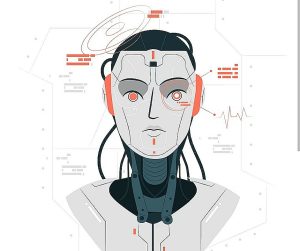
The legal sector, which has traditionally been sluggish to embrace new technologies, is now beginning to explore the possibilities of AI. AI is being used by lawyers and law firms in their electronic devices and computer software, some of which are created especially for lawyers, such as document management systems and billing software.
The fears and scepticism of lawyers, the changes legal AI technology has brought to the practice of law, and other factors, therefore, beg the question “what would be the future role of AI in the legal industry, and will AI replace lawyers?”
Recommended: Will AI Replace Programmers? See Answer
Relationship Between AI And the Legal Profession
In recent years, artificial intelligence (AI) has advanced rapidly and is now being utilized more often across a variety of industries to automate monotonous activities, boost productivity, and decrease human error. The phrase “artificial intelligence” (AI) refers to a wide range of technologies that allow robots to carry out tasks that ordinarily require human intelligence. These tasks may include natural language processing, machine learning, computer vision, and robotics, among others. AI systems can be trained on large volumes of data to recognize patterns, make predictions, and even learn from their mistakes.
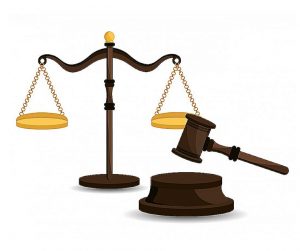
In the legal industry, AI is being used for a range of tasks, including document review, contract analysis, legal research, and even predictive analytics. For example, AI-powered document review tools can quickly scan and analyze large volumes of legal documents to identify relevant information, saving lawyers time and increasing efficiency. Similarly, contract analysis tools can extract key terms and clauses from contracts, enabling lawyers to focus on the most critical issues. Legal research tools powered by AI can quickly search and analyze legal databases to identify relevant case law and precedents, helping lawyers build stronger legal arguments.
Also see: Differences Between A Software Engineer And A Computer Engineer
Will Lawyers Be Replaced By AI?
The business of law, in all its forms, revolves around “words,” thus some lawyers believe that this is impossible, at least for the more complicated legal matters. The use of “words” has always been crucial to creating and upholding laws throughout history. All legal professions have traditionally been based on rhetoric and grammar. Depending on the context and placement of a sentence, words may be ambiguous or have many interpretations. Word interpretation appears to be a solely human endeavour.
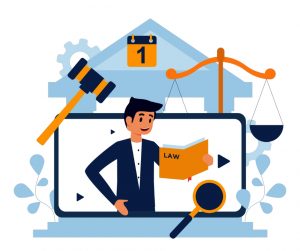
However because the Law is “prescriptive” in nature, it presupposes straightforward deductive processes, which makes it perfect for AI “coding.” Simply put, the Law is not immune to AI; on the contrary, it is an excellent application area for AI. The good news for today’s lawyers is that we are still a long way from AI taking over their practice. For this to occur, however, then “legal thought” must first be coded.
To code legal thought, one must develop processes that will allow machines to comprehend and interpret laws, contracts, and court decisions, and trust me, that mission still seems far off in the future because “words” and “sentences,” the subject of law, have various interpretations, many of which are elusive and prone to manipulation by legislators, lawyers, and even judges, who are no more than humans and, as such, have strong sentiments, ideologies, and convictions.
Yet, in the not-too-distant future, legal reasoning may become software-coded. It will proceed in this manner. First, AI will take the position of lawyers and other legal professionals in document review. Machine learning and pattern recognition technologies are used by document review systems to detect essential contract concepts, tag clauses, trends in court decisions, flag disparities, and other patterns in the application and interpretation of laws and contracts, among other things.
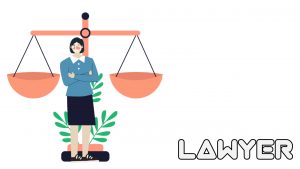
Recommended: Differences Between Law And Statute
To evaluate the data emerging from computer systems and provide meaning to those patterns and anomalies, lawyers are still required. The computer will develop new models, identify potential hazards, and more as it integrates the human lawyers’ interpretation. Law firms now successfully use existing computer systems like Luminance or Kira to assist with client counsel and due diligence. Legal practitioners will benefit from future legal algorithms that will make it easier for them to decide which legal category a case falls under and how the law will be implemented in a certain situation. This is a step closer to determining how legal rules should be applied.
Tasks will be performed with increasing complexity, eliminating false positives, the application of conflicting rules and rights, the existence of exculpatory reasons to dismiss the application of a given rule, and the selection of another prevailing rule.
Many attorneys contend that practising law has unique characteristics that render it an incomputable undertaking, such as the interference of feelings and beliefs. They assert that while AI can delve into data statistics and the frigid walls of legal statutes, it cannot read or comprehend the emotions and minds of real people. And in all honesty, there is some merit in that viewpoint.
Although the use of legal technology, and in particular artificial intelligence (AI) systems, will change how attorneys operate, the former will still require all the ingenuity of the lawyers to interpret the complex legal matters needed to power legal AI. Legal scholars and practitioners will need to analyze the problems raised by current laws, agreements, and case law to map future AI systems. Lawyers will also need to understand how to create legal documents like contracts, opinions, and court filings as well as how to query AI-powered systems, interpret the data that AI generates, and interpret the findings.
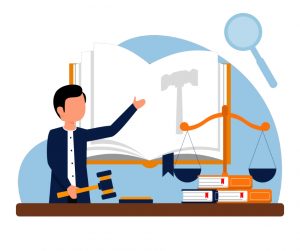
Also see: Most Difficult Exams in the World 2023: Top 14 Toughest
Legal AI will empower lawyers and clients. It will create faster and more efficient ways of completing all legal tasks, thus radically changing the way lawyers provide services.
But….AI will not replace lawyers
The design of a decision tree for automation has its drawbacks. It specifically calls for outlining all possible scenarios’ positive and negative responses. That in itself is a very challenging undertaking given how intricate and subtle law is, and there is a good chance that the process will fail if a question or answer deviates from the predicted course.
The principal tool of a lawyer is ultimately words. They counsel, convince, argue, and show empathy for others. Emotion is another crucial component. It is difficult to imagine a machine ever surpassing the differences lawyers can make through the complexity and finesse of language, to communicate with clients, judges, and the larger community.
Recommended: Countries With The Best Judicial System In The World 2023
Major Reasons Why AI Cannot Replace Lawyers
1. AI is incapable of human judgement, emotions, or logic: The absence of human reasoning and judgement in AI is one of its biggest flaws. Machines are built to rigidly adhere to laws; they lack human intuition, which enables them to make logical leaps. AI can analyse data and predict outcomes using that data, but it cannot simulate the kind of complex analysis that lawyers use when examining cases. Lawyers must consider a range of factors while making decisions, including precedent, legal theory, and the particulars of the case.This calls for a level of judgement and reasoning that AI is incapable of matching.

AI just lacks the emotional intelligence needed for the legal profession to emotionally engage with clients. In addition to giving legal advice, a lawyer’s job description includes helping clients get through difficult and stressful situations. This requires a level of interpersonal interaction and emotional intelligence that AI cannot match.
2. AI cannot represent you in court
While AI can help with document preparation, sample argument preparation, and legal research, it cannot present a case to a court or jury. A level of vocal argumentation and energy that AI cannot match is required for court processes and scenarios.
A lawyer must be able to respond swiftly to questions from the court or the other side’s counsel as well as provide strong arguments. AI just does not possess the flexibility and adaptability necessary to deal with unforeseen circumstances, such as last-minute witnesses, arguments, or evidence.
3. AI lacks the High levels of trust necessary in the legal sector: Clients put their faith in their lawyers to advocate for them in court cases, which may have significant financial and interpersonal repercussions.
A close relationship and a thorough comprehension of the client’s requirements, objectives, and emotional condition are the foundations of trust. To maintain their client’s trust, attorneys must maintain strict client confidentiality and uphold the highest ethical standards. AI is unable to establish close bonds with people or discern a client’s emotional condition.
Recommended: Most Comfortable Prisons In The World (With Pictures)
Conclusion
Law is a science, a practice, and an art, thus it cannot be reduced to a series of simple equations. This is both the legal and technological limit of AI. These AI tools can undoubtedly increase the effectiveness and precision of legal work, but they cannot take the position of lawyers. Based on their legal knowledge, professional obligations, and client demands, attorneys must still analyze the evidence and come to wise conclusions. AI systems can be useful to lawyers, but they cannot take the place of the human intellect, imagination, and emotion.

Edeh Samuel Chukwuemeka, ACMC, is a lawyer and a certified mediator/conciliator in Nigeria. He is also a developer with knowledge in various programming languages. Samuel is determined to leverage his skills in technology, SEO, and legal practice to revolutionize the legal profession worldwide by creating web and mobile applications that simplify legal research. Sam is also passionate about educating and providing valuable information to people.